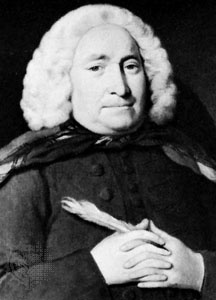Chubb, Thomas
British theologian
born Sept. 29, 1679, East Harnham, Wiltshire, Eng.
died Feb. 8, 1747, Salisbury, Wiltshire
 self-taught English philosopher and proponent of Deism, regarded by Voltaire as one of the most logical of his school.
self-taught English philosopher and proponent of Deism, regarded by Voltaire as one of the most logical of his school.The son of a maltster, Chubb was apprenticed to a glovemaker and later worked for a tallow chandler. He read widely and began to write on rationalism in the early 1700s; his first publication was an essay, “The Supremacy of the Father Asserted,” written in 1715 in response to the Arian controversy. He then went to London to live for a time, apparently as a servant, in the house of the master of the rolls, Sir Joseph Jekyll, but eventually returned to Salisbury. Chubb's other works, which include Discourse Concerning Reason (1731), The True Gospel of Jesus Christ Vindicated (1739), and Discourse on Miracles (1741), betray the deficiencies of his being self-taught, and he was often treated disparagingly by more erudite theological controversialists. His tracts tended to limit the Christian religion to three fundamental tenets: belief in the divinely ordained moral law, belief in the need of sincere repentance for sin, and belief in future rewards and punishments. The Discourse on Miracles took the position that miracles provide merely a “probable proof” of revelation. His Posthumous Works, in two volumes, appeared in 1748.
- Number of possible alkane isomers
- Numbers
- numbers game
- number symbolism
- number theory
- Numenius of Apamea
- numerals and numeral systems
- numeral system
- Numerian
- numerical analysis
- numerology
- nu metal
- Numic languages
- Numidia
- nummulite
- Nun
- nun
- nunatak
- Nunavut
- Nunavut, flag of
- nunbird
- Nunc Dimittis
- nuncio
- Nuneaton and Bedworth
- Nunes, Pedro